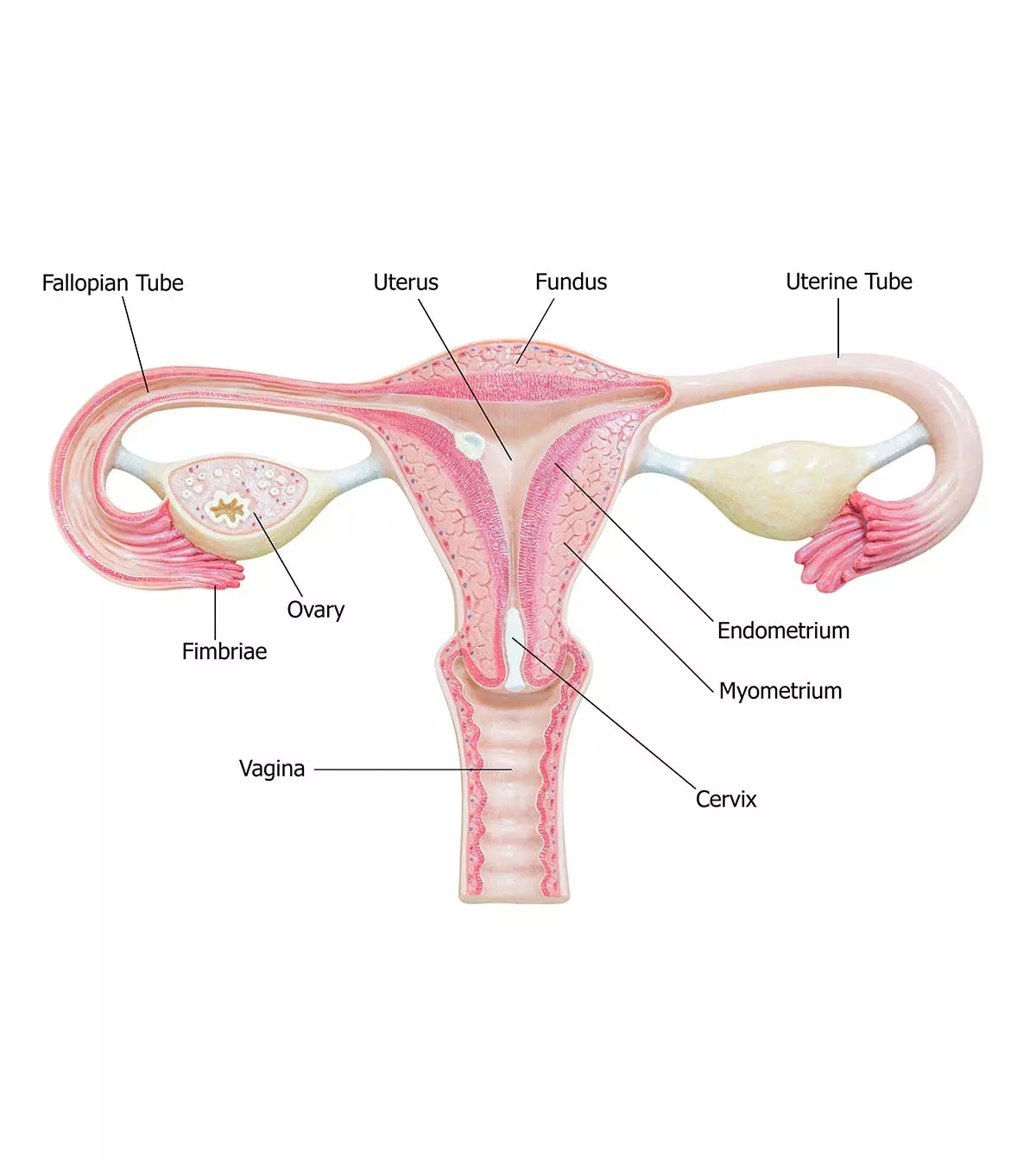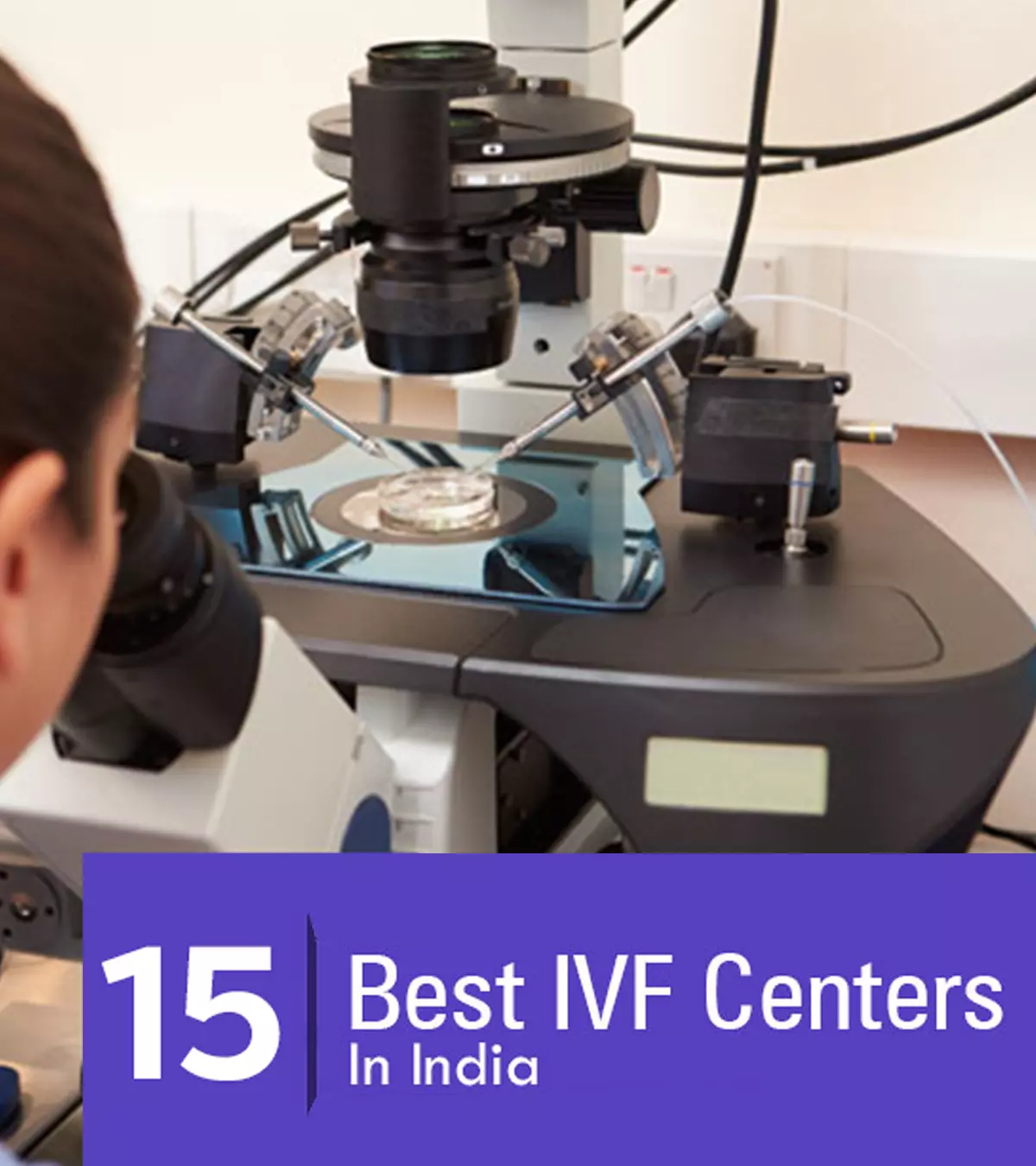
Image: ShutterStock
Fertility drugs for women were first offered in the United States in the early 1960s, and they have since assisted many women in becoming pregnant (1). The majority of fertility tablets increase the chances of conception by stimulating ovulation. In addition to infertility, these prescription-only drugs can be used to treat various medical issues in women. Knowing the types of medications available is essential for women struggling to conceive. Read this post to learn more about the best fertility pills to get pregnant, including their mechanism and various pros and cons of taking these drugs.

Key Pointers
- Fertility drugs are prescribed for women with fertility issues due to underlying medical conditions such as ovulation problems, thyroid disorders, and hormonal imbalances.
- Fertility drugs are administered with conception treatments and help stimulate superovulation, hormonal regulation, and prevent premature ovulation.
- Commonly prescribed fertility drugs include clomiphene citrate, letrozole, metformin, dopamine antagonists, and gonadotropins.
- Long-term use of fertility drugs can cause hot flashes, irritability, mood changes, multiple births, ectopic pregnancies, and ovarian stimulation syndrome.
When Do Women Need Fertility Drugs?
According to the US Centers for Disease Control and Prevention (CDC), about 19% of married women aged between 15 and 49 years who have never given birth experience difficulty conceiving after a year of trying (18).
The World Health Organization (WHO) explains infertility as a disease of the reproductive system, defined by the failure to achieve a clinical pregnancy after 12 months or more of regular unprotected sexual intercourse (2).
Despite the popularity of fertility drugs, the most commonly sought-after fertility service is fertility advice, with 7% of women reporting utilizing it. Fertility testing follows closely with 6%. At the same time, fertility drugs account for about 5% of couples seeking fertility services.

Percentage of couples using various fertility treatments to conceive
Source: Coverage and Use of Fertility Services in the U.S.; Kaiser Family Foundation/National Survey of Family Growth (NSFG)Fertility drugs are suitable if you have infertility due to any one or more of the following health issues:
- Polycystic ovary syndromeiA hormonal condition that commonly causes missed or irregular menstrual periods, excess hair growth, acne, infertility, and weight gain. (PCOS) endometriosis and other ovulation problems
- Thyroid disorders
- Eating disorders
- Weight problems – underweight, overweight or following an extreme workout

- Issues with FSH (follicle-stimulating hormone) and LH (luteinizing hormone) levels
Most of the above conditions cause infrequent or missed ovulation, and your doctor may prescribe medications to address your specific problem (3).
How Do Fertility Drugs For Women Work?
Fertility drugs work by:
- Stimulating ovaries to produce more eggs
- Increasing certain hormonal levels in the body, thereby helping to mature and release more than one egg per cycle. It is known as controlled ovarian hyperstimulation (superovulation)
- Preventing premature ovulation during assisted reproductive technologyiMedical procedures that help treat male and female infertility. (ART) procedures
Fertility drugs also work in conjunction with assisted conception treatments such as artificial insemination or in vitro fertilization (IVF) (4).
What Are The Best Fertility Drugs For Women?
Almost all fertility drugs help in ovulation, but the right medicine for you depends on what is affecting your ovulation and conception (5).
1. Clomiphene citrate

Clomiphene citrate causes ovulation by stimulating the pituitary gland. It is prescribed for women with PCOS or other ovulation issues. It is also recommended for improving the production of eggs in women with regular ovulation.
- The oral medication should be taken for five days during the initial phase of the menstrual cycle, for up to six menstrual cycles.
- It is found to cause ovulation in 80% of women, of which half were able to get pregnant. Its success rate depends on the age of women and other factors (6).
- The drug may also increase the likelihood of multiple pregnancies (7).
- It is available under the brand names of Clomid, Clomidac, Bemot, Clomifene, etc.
However, the American Society of Reproductive Medicine (ASRM) advises against the prolonged (>10 cycles) use of Clomiphene as heavy doses can put women at risk of developing thyroid cancer (19).
 Quick fact
Quick fact2. Letrozole
Letrozole is also used to stimulate ovulation. The oral medication activates the pituitary glands to make more FSH, to induce ovulation and release eggs. It works for women with PCOS, and in normal women to improve the production of eggs.
- The medication should be taken for five days during the initial phase of the menstrual cycle.
- It may work better than clomiphene in women with PCOS.
- Women resistant to clomiphene citrate demonstrate an increase in the ovulation rate with the use of letrozole (8).
- It is available under the brand name Femara.
3. Human menopausal gonadotropin (hMG)
hMG is a combination of hormones FSH and LH. These hormones mainly stimulate ovaries to produce and ripen eggs. Gonadotropins are useful for women who have healthy ovaries but cannot ovulate (develop-eggs). This usually happens when there are problems with the pituitary gland.
- It is an injectable medicine, usually given subcutaneouslyiA method of administering an injection under the skin. (9).
- They are injected two to three days after the periods start, for up to seven to twelve days.
- The drug is available under the brand names Menopur, Pergonal, and Repronex.
4. Follicle-stimulating hormone (FSH)

This medication also works like hMG by stimulating the ovaries to produce more follicles and thereby more eggs (20).
- It is an injectable drug.
- The course of treatment lasts for ten to 12 days, depending on the time it takes for the eggs to mature.
- It is available under the brand names of Gonal-F, Follistim AQ, Fostimon, Bemfola, Puregon, Pergoveris, and Bravelle.
5. Human chorionic gonadotropin (hCG)
The injectable medication stimulates the eggs to mature and rupture.
- It is given as the final trigger in ART treatment.
- It is available under the brand names Choragon, Ovitrelle, Ovidrel, Pregnyl, and Profasi.
However, in rare cases, women taking gonadotropin injections may develop a condition called ovarian hyperstimulation syndromeiIt is a severe complication of fertility treatments that makes the ovaries enlarged and fluid leaks into the abdomen and chest, causing symptoms like abdominal pain, bloating, and difficulty breathing. (OHSS), which can be fatal (21).
6. Gonadotropin-releasing hormone (GnRH) antagonists
GnRH antagonists are prescribed for women who are treated with the Controlled Ovarian Stimulation (COS) technique, which is used along with IVF (10).
They work by suppressing the production of FSH and LH, which otherwise stimulate ovaries to release eggs. In this way, GnRH antagonists prevent spontaneous ovulation and allow the eggs to mature only at the time of IVF treatment.
- They are available as injections.
- They are usually combined with IVF treatment.
- Are available under the brand names of Lutrepulse and Factrel.
7. Metformin hydrochloride

Metformin usually helps improve the body’s sensitivity to insulin and treats diabetes. However, it can also treat ovulation problems in women with PCOS. This oral medicine restores the balance of estrogen and testosterone levels, which helps the body to ovulate regularly (21).
- In some cases, metformin is combined with clomiphene.
- The dose and duration of metformin depend on the clinical requirement.
- It is available under the brand name Glucophage.
8. Bromocriptine and Cabergoline (Dopamine antagonists)
These drugs are used to treat abnormal levels of prolactiniA hormone secreted by the pituitary gland responsible for milk production in mothers hormone that interfere with ovulation. Pituitary growths, thyroid disease, kidney disease, and antidepressants cause high levels of prolactin, leading to problems with ovulation due to increased estrogen levels (21).
- They are oral medications.
- They are available under the brand names Parlodel and Cycloset (Bromocriptine) and Dostinex (Cabergoline).
 Expert says
Expert saysRecently, a new fertility drug named Rapamycin, an immunosuppressant, has been developed that works by slowing ovarian aging. The result from the VIBRANT study showed that weekly doses of Rapamycin can decrease ovarian aging by 20% by lowering the loss of eggs to 15 a month, which is a typical loss of about 50 eggs a month. Thus, it can help improve fertility in women after their 30s and help delay menopause. Dr. Yousin Suh, Director of Reproductive Aging and the co-author of the VIBRANT study, says, “By slowing ovarian aging using a safe, inexpensive pill, we can extend women’s healthspan and lifespan (22).”
Disclaimer: The primary focus of listing these drugs is to help you understand their general usage, interaction, and side effects. The use of trade names is for identification. You should always check with your medical practitioner before using them.
Are There Any Side Effects Of Fertility Drugs In Women?

Like any other medical treatment, fertility drugs also have some side effects, primarily upon long-term usage. The unpleasant effects of some of the fertility pills include (11) (12):
- Mild reactions such as moodiness, anxiety, depression, hot flashes, headaches, restlessness, and irritability.
- Increased chances of multiple pregnancy.
- Higher risks of premature labor are associated with multiple births.
- Ovarian stimulation syndrome, which causes the ovaries to become abnormally large with fluid. The syndrome is associated with stomach pain, swollen stomach, nausea, shortness of breath, edema, and reduced urine.
- Chances of ectopic pregnancyiA pregnancy condition when a fertilized egg implants and grows outside the uterus, mostly in the fallopian tube. in women who undergo IVF treatments.
- Chances of ovarian cancer (19)
 Quick fact
Quick factFrequently Asked Questions
1. Which fertility pills increase my chances of having twins?
Taking clomiphene and gonadotropin injections can increase your chances of multiple pregnancies (twins or more) by 15% and 11%, respectively (13).
2. What is the fastest way to get pregnant?
The fastest way to get pregnant is to have sex every two to three days per week, beginning soon after your period ends (during the fertile window) (14).
3. What are the signs of infertility in a woman?
Depending on the underlying reasons for infertility, the signs and symptoms may vary from one woman to another. If you’re wondering, ‘why am I not getting pregnant?’, some common signs that may indicate infertility include – heavy periods, pelvic pain, and skipped or unpredictable periods (15).
4. How do I know if I am fertile enough to get pregnant?
Tracking your ovulation is one of the most common ways to determine if you are fertile. However, if you have not been able to conceive after trying for more than a year, you could consult your doctor to undergo fertility tests. Your doctor may discuss your medical history to check for ovulation or menstrual cycle issues. Your doctor may advise blood tests to check hormone levels and potential eggs in ovaries. Pelvic examination and ultrasound imaging are other ways your healthcare provider can check for structural causes of infertility (16).
5. Is folic acid a fertility drug?
Lauren Manaker, a registered dietitian nutritionist from Charleston, South Carolina, says, “Folic acid isn’t classified as a drug. It is a nutrient. People can take this supplement to get B vitamins. However, while it is often thought of as a nutrient that helps reduce the risk of congenital disabilities, once a person becomes pregnant, it may also support fertility. Folic acid can have antioxidant activity which may support egg and/or sperm health.”
6. What are natural fertility boosters?
“While no nutrient or food will guarantee pregnancy, some nutrient-dense foods may support a person’s fertility journey. Salmon or other oily fish is a source of omega-3 fatty acids, and eating this food may help support fertility. Following a Mediterranean-style diet has been linked to positive fertility outcomes,” suggests Manaker. These are often referred to as fertility foods.
7. What lifestyle changes can support fertility treatment?
Maintaining a healthy BMI, reducing alcohol consumption, quitting smoking, limiting caffeine, and managing stress can help improve fertility treatment outcomes (17).
8. What are some alternative therapies for fertility in women?
Your doctor might include Dehydroepiandrosterone (DHEA) supplementation (23), acupuncture, nutritional therapy, reflexology, fertility yoga, mindfulness, and meditation to support your fertility treatment. However, there is no conclusive evidence regarding the safety and efficacy of these treatment options (20) (24).
Fertility drugs for women have for long helped them get pregnant. Doctors may recommend these drugs if you have infertility due to thyroid disorders, eating disorders, or weight problems. Some of the common fertility drugs include Clomiphene Citrate and Letrozole, which stimulate the pituitary gland to cause ovulation, and metformin hydrochloride improves the body’s sensitivity to insulin and treats diabetes. These drugs may sometimes cause headaches, restlessness, nausea, and other symptoms. Nevertheless, you should not worry, as many women have benefited from these drugs. Remember that you should take these drugs only after seeking your doctor’s advice.
Infographic: Other Medications Useful In Treating Female Infertility
The doctor may prescribe certain other medications in the course of fertility treatment. The infographic below summarizes such medications that may assist fertility treatment regimes.
Some thing wrong with infographic shortcode. please verify shortcode syntax
Some thing wrong with illustration image shortcode. please verify shortcode syntax
Watch this video to learn how to provide fertility drugs to women in the right way. Discover vital information to help you safely address fertility issues.
References
1. Dmitry M. Kissin, et al.; (2017); Fertility Treatments in the United States: Improving Access and Outcomes; Obstetrics and Gynecology
2. Infertility; WHO
3. What are some possible causes of female infertility?National Institute of Child Health and Human Development
4. In Vitro Fertilization; Human Fertilization and Embryology Authority
5. Medications for inducing ovulation; The American Society of Reproductive Medicine
6. Anderson Sanches Melo, et al.; (2015); Treatment of infertility in women with polycystic ovary syndrome: approach to clinical practice; Elsevier Clinics
7. CLOMID (clomiphene citrate tablets USP); Access data; The Food and Drug Administration
8. Sujata Kar; (2012); Clomiphene citrate or letrozole as first-line ovulation induction drug in infertile PCOS women: A prospective randomized trial; Journal of Human Reproductive Sciences
9. Fertility Treatments for Females; The Eunice Kennedy Shriver National Institute of Child Health and Human Development; the United States Department of Health and Human Services.
10. Qiaohong Lai, et al.; (2013); Comparison of the GnRH agonist and antagonist protocol on the same patients in assisted reproduction during controlled ovarian stimulation cycles; International journal of clinical and experimental pathology
11. Derman SG and Adashi EY.; (1994); Adverse effects of fertility drugs; Drug Safety
12. Kristin L Rooney and Alice D Domar; (2018); The relationship between stress and infertility; Dialogues in Clinical Neuroscience
13. Michael P Diamond, et al.; (2013); Estimating Rates of Multiple Gestation Pregnancies: Sample Size Calculation from the Assessment of Multiple Intrauterine Gestations from Ovarian Stimulation (AMIGOS) Trial; Contemporary clinical trials
14. How to Get Pregnant; American Pregnancy Association
15. Identifying signs of infertility: Symptoms, causes and first steps; UChicago Medicine
16. Fertility Testing & Diagnosis for Women; Women & Infants
17. Rakesh Sharma, et al.; (2013); Lifestyle factors and reproductive health: taking control of your fertility; Reproductive Biology and Endocrinology
18. Infertility: Frequently Asked Questions; CDC
19. Fertility drugs and cancer: a guideline (2025); American Society of Reproductive Medicine (ASRM)
20. Fertility treatments; The Royal Women’s Hospital
21. Fertility drugs; Human Fertilisation and Embryology Authority (HFEA)
22. Ground-breaking Clinical Trial Explores Delaying Menopause; Columbia University Irving Medical Center
23. Norbert Gleicher and David H Barad; (2011); Dehydroepiandrosterone (DHEA) supplementation in diminished ovarian reserve (DOR); Reproductive Biology and Endocrinology
24. Complementary and alternative therapies; Human Fertilisation and Embryology Authority (HFEA)
Community Experiences
Join the conversation and become a part of our nurturing community! Share your stories, experiences, and insights to connect with fellow parents.
Read full bio of Dr. Rita Bakshi
- Lauren Manaker is a research assistant at the Center for Disease Control and Prevention (Atlanta, GA), and Shands Hospital (Gainesville, FL). She did her BSc in Food Science and Human Nutrition from the University of Florida and MS in Clinical Nutrition from Rush University (Chicago, IL).
 Lauren Manaker is a research assistant at the Center for Disease Control and Prevention (Atlanta, GA), and Shands Hospital (Gainesville, FL). She did her BSc in Food Science and Human Nutrition from the University of Florida and MS in Clinical Nutrition from Rush University (Chicago, IL).
Lauren Manaker is a research assistant at the Center for Disease Control and Prevention (Atlanta, GA), and Shands Hospital (Gainesville, FL). She did her BSc in Food Science and Human Nutrition from the University of Florida and MS in Clinical Nutrition from Rush University (Chicago, IL).
Read full bio of Rebecca Malachi
Read full bio of Swati Patwal
Read full bio of Aneesha Amonz















